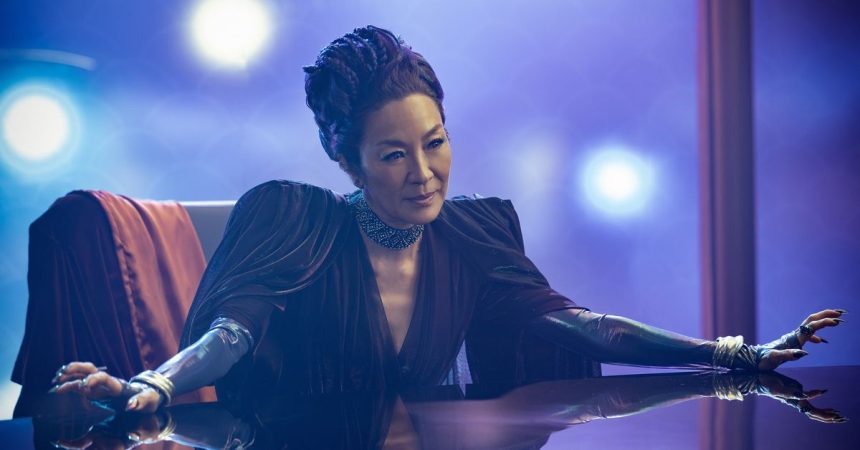Star Trek: Section 31, the franchise’s first non-theatrical film in nearly a decade, defies expectations of a made-for-TV feel, delivering a compelling narrative that honors its characters and sets a promising new direction for the Star Trek universe. The film capitalizes on Michelle Yeoh’s iconic status, further solidified by her Oscar win, and leverages her powerful portrayal of Captain Philippa Georgiou, a character that revitalized her career during her time on Star Trek: Discovery. While initially conceived as a series, the pandemic-induced delays led to its transformation into a feature film, a decision that aligns with executive producer Alex Kurtzman’s broader vision for the franchise. The film stands alone, requiring no prior knowledge of Discovery, but familiarity with the series enriches the viewing experience, particularly regarding Georgiou’s complex journey from ruthless Mirror Universe emperor to a more nuanced character in the Prime Universe.
Section 31 delves into Georgiou’s backstory, revealing the formative experiences that shaped her into the formidable leader she became. The film opens with a flashback to Georgiou’s youth, depicting her participation in a brutal battle royale that determined the Terran Empire’s next ruler. This glimpse into her past, marked by shared trauma with fellow contestant San, illuminates the darkness that drove her actions as a villain and lays the groundwork for her eventual transformation into an antihero. This exploration of her past provides context for her present-day cynicism and her recruitment into Section 31, Starfleet’s clandestine intelligence agency, by agent Alok. While her present finds her running a nightclub/spaceship outside Starfleet jurisdiction, the scars of her past continue to haunt her, making her a complex and compelling protagonist.
Despite the serious ethical questions posed by Section 31’s morally ambiguous operations, the film maintains a surprisingly lighthearted tone, particularly in its portrayal of Alok’s team. This eclectic group of operatives, including a shapeshifter, a Vulcan-esque character, a telepath, an exoskeleton pilot, and a human Starfleet officer, brings a distinct comedic energy to the narrative. Their quirky personalities and frequent clashes often evoke comparisons to the Guardians of the Galaxy, injecting a sense of playful camaraderie into the high-stakes world of espionage. This dynamic proves effective in balancing the film’s darker themes with moments of levity.
The central plot revolves around a dangerous bioweapons engineer and Section 31’s mission to secure his deadly creation, even if it means resorting to lethal measures. While the film effectively blends humor and action, the occasional tonal shifts between comedic banter and Georgiou’s internal struggles can feel somewhat disjointed. The film’s comedic leanings sometimes undermine the potential for deeper exploration of the ethical dilemmas posed by Section 31’s existence and its implications for the Federation’s purported utopian ideals. However, the overall narrative remains engaging, driven by the compelling portrayal of Georgiou and the intriguing dynamic of her team.
Yeoh commands the screen, relishing the opportunity to showcase Georgiou’s complex personality and biting wit. The film’s vibrant visuals, particularly the depiction of Georgiou’s opulent nightclub, add to the overall spectacle. The blend of humor, action, and morally grey characters creates a distinct tone that occasionally evokes comparisons to Warner Bros.’ Suicide Squad, offering a fresh perspective within the Star Trek universe. While the film’s pacing and tonal shifts prevent a more in-depth exploration of character development, it successfully delivers a standalone story with a satisfying conclusion.
Ultimately, Star Trek: Section 31 succeeds as a compelling narrative that both honors its roots and charts a new course for the franchise. While born from the remnants of a planned series, the film stands on its own merits, offering a complete and engaging story. The ending leaves the door open for future adventures, suggesting the potential for Section 31 to evolve into a new series or a series of films. In a landscape of recent Star Trek cancellations, this feature film stands as a successful experiment, gauging audience interest in Georgiou’s character and the morally ambiguous world of Section 31. Its success suggests a promising future for Star Trek features on streaming platforms.



